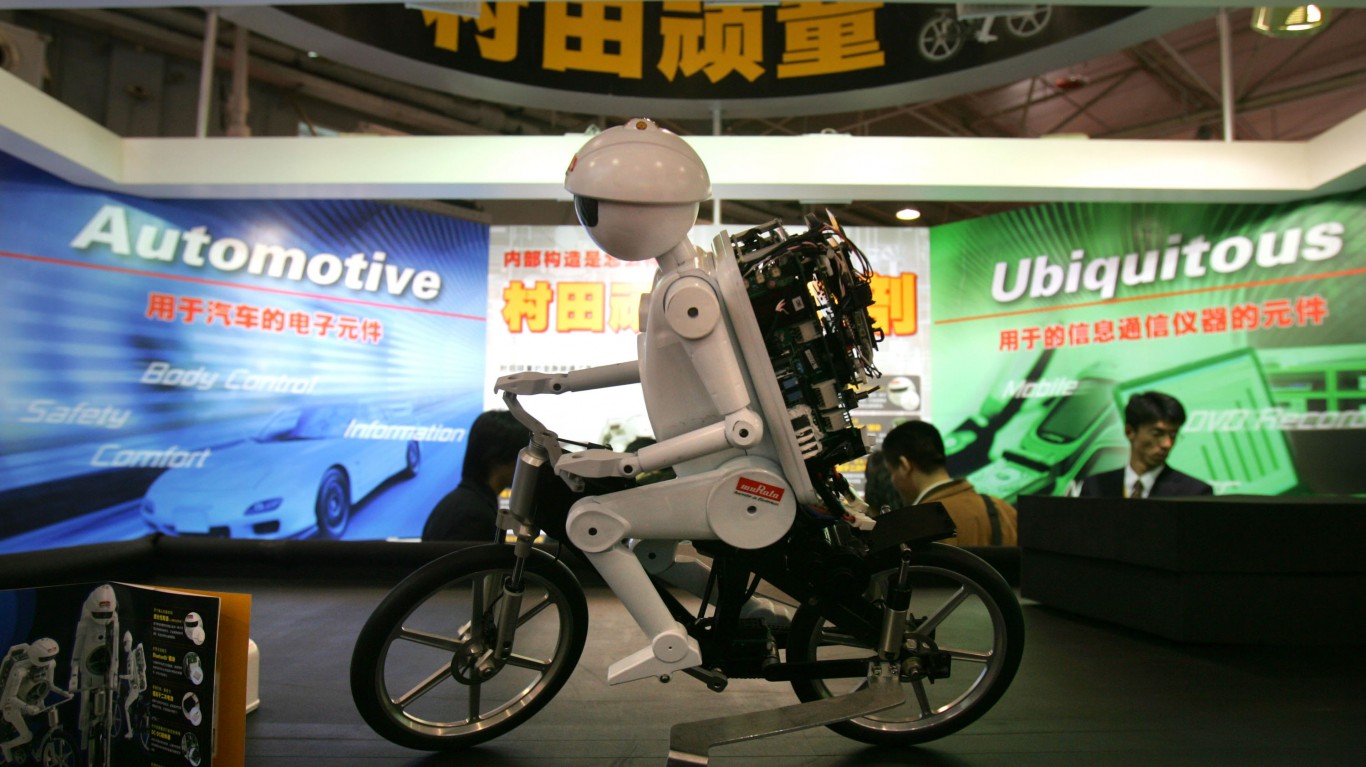
There are plenty of studies that predict anywhere from a third to nearly half of all jobs done by people will one day be automated. That doesn’t mean that some version of R2D2 will be rolling around blinking and beeping, but that computing devices, artificial intelligence and machine learning will eliminate undependable humans who want to get paid, take vacations and have a life outside their jobs.
That may well happen, but those days still appear to be a long way off, according to the United Kingdom’s Office of National Statistics (ONS), which on Monday published a study on U.K. job automation indicating that the percentage of jobs at high risk of being automated fell from 8.1% in 2011 to 7.4% in 2017. In absolute numbers, of the 19.9 million U.K. jobs analyzed, just 1.5 million were at high risk of being automated in 2017.
The percentage of jobs at low risk of being automated rose from 25.3% in 2011 to 27.7% (5.5 million), and the percentage of medium-risk jobs (the remaining 12.9 million) fell from 66.6% to 64.9%.
The ONS study, like an earlier study by the Organisation for Economic Co-operation and Development (OECD), assumes that automation will be applied to certain tasks, not to entire occupations. A 2013 U.S. study, based on occupations, estimated that 47% of U.S. jobs were at high risk of being automated in 10 to 20 years. By looking at tasks, the ONS researchers say they account for the fact “that high risk occupations contain a share of tasks that would be difficult to automate.”
So, what are the tasks associated with high-risk and low-risk jobs? The ONS searched a standard job classification manual to see which tasks were most often associated with jobs at either low or high risk of automation. The five words most often associated with jobs at high risk of automation were machine, operate, clean, equipment and load. The five words that appeared most frequently in descriptions of low-risk jobs were plan, patient, research, treatment and prepare.
Among the U.K. jobs at the highest risk of automation are theme park workers, van drivers, waiters and waitresses, entry-level sales and services jobs, laundry and dry cleaning workers, retail cashiers, farm workers and elementary administration (clerks, secretaries) jobs.
Some 70% of employees in these high-risk categories are women. In occupations with a low risk of automation, women account for 42.6% of employees.
Part-time workers account for nearly 70% of employees in jobs with a high-risk of automation while part-timers account for just 11% of jobs at low risk.
Younger workers are more likely to be working in jobs with a high risk of automation. Some 45% of high-risk jobs are held by people between the ages of 20 and 30. The ONS points out (hopefully) that younger workers tend to move to lower-risk jobs as their careers develop. The probability of automation is lowest (1.3%) for workers between the ages of 35 and 39.
Education plays a big role in the risk probabilities of automation. Workers with a college degree have a zero probability of losing their jobs to automation. For all low-risk jobs, 87% are held by people with degrees. Virtually all (98.8%) jobs at high-risk of automation are held by people with the equivalent of a high school diploma or less.
Visit the ONS website to review the entire study, along with the methodology and links to other material.
Take Charge of Your Retirement: Find the Right Financial Advisor For You in Minutes (Sponsor)
Retirement planning doesn’t have to feel overwhelming. The key is finding professional guidance—and we’ve made it easier than ever for you to connect with the right financial advisor for your unique needs.
Here’s how it works:
1️ Answer a Few Simple Questions
Tell us a bit about your goals and preferences—it only takes a few minutes!
2️ Get Your Top Advisor Matches
This tool matches you with qualified advisors who specialize in helping people like you achieve financial success.
3️ Choose Your Best Fit
Review their profiles, schedule an introductory meeting, and select the advisor who feels right for you.
Why wait? Start building the retirement you’ve always dreamed of. Click here to get started today!
Thank you for reading! Have some feedback for us?
Contact the 24/7 Wall St. editorial team.
 24/7 Wall St.
24/7 Wall St.


